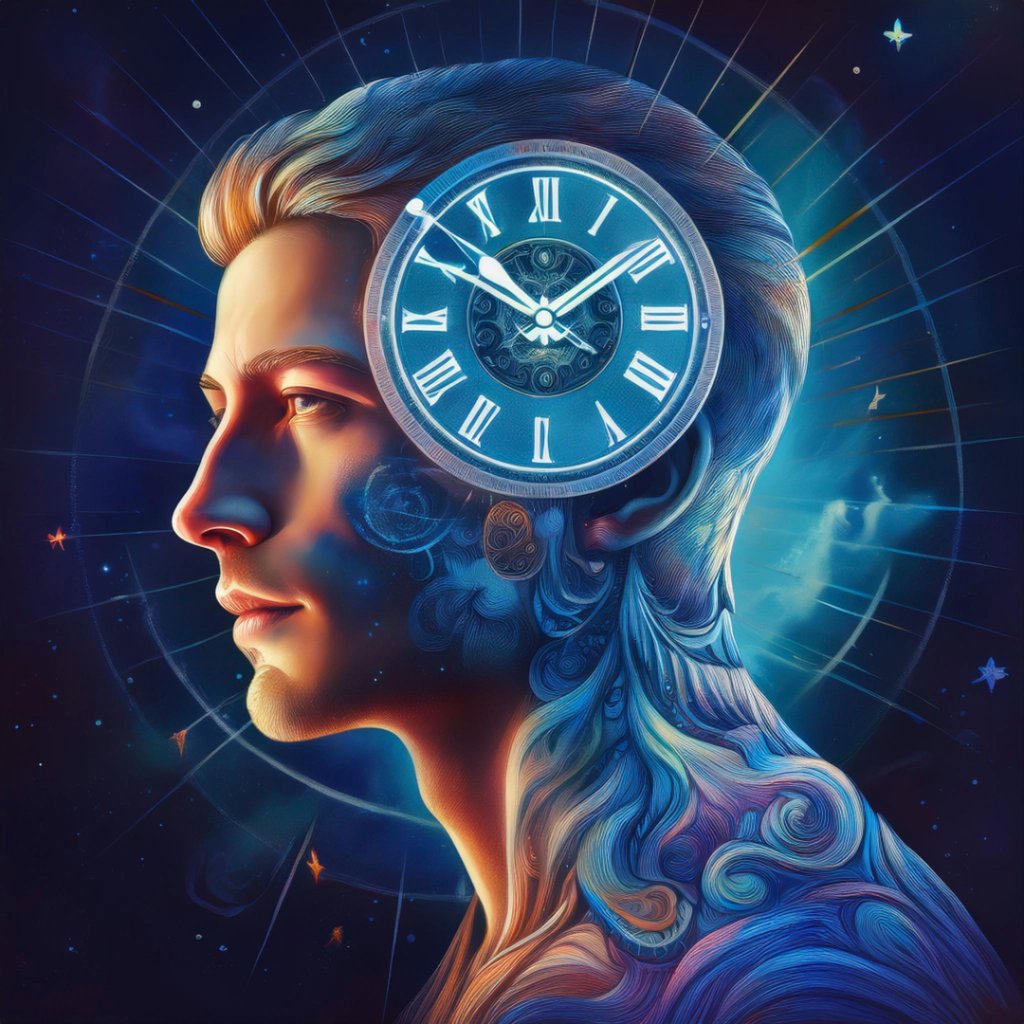Understanding Circadian Rhythms: How Your Body Clock Affects Sleep
We all know the importance of a good night’s sleep, but did you know that your body’s internal clock, known as your circadian rhythm, plays a crucial role in regulating sleep patterns? Understanding how circadian rhythms work and how they impact your daily life can help you optimize your rest, leading to improved health and well-being. In this blog, we’ll explore what circadian rhythms are, how they affect sleep, and how you can align your daily routine with your body’s natural rhythm for better sleep quality.

What Is a Circadian Rhythm?
Your circadian rhythm is a natural, 24-hour cycle that controls when you feel awake and when you feel tired. It’s influenced by external factors like light and darkness, and it helps regulate important bodily functions such as hormone production, digestion, and sleep.
This internal clock is controlled by a group of cells in the brain called the suprachiasmatic nucleus (SCN), located in the hypothalamus. The SCN receives signals from your eyes about the surrounding light, helping to sync your body with the day-night cycle of your environment.
When properly aligned, your circadian rhythm ensures you’re alert during the day and ready to sleep at night.
How Circadian Rhythms Affect Sleep
Your circadian rhythm directly influences your sleep-wake cycle by regulating the production of sleep-inducing hormones like melatonin. Here’s how the process works:
- Morning (Wake-Up Time): When natural light enters your eyes, your body reduces melatonin production and increases the release of cortisol, a hormone that promotes alertness.
- Afternoon: As the day progresses, your body remains in a state of heightened alertness, which is sustained by daylight and activity.
- Evening (Wind-Down Time): As the sun sets and darkness begins to fall, your body’s melatonin levels start to rise, signaling to your brain that it’s time to prepare for sleep.
- Night (Sleep Time): Melatonin continues to increase, allowing you to fall asleep and stay asleep through the night.
Disruptions to this cycle—whether from irregular sleep schedules, shift work, or excessive exposure to artificial light—can lead to circadian rhythm imbalances, causing sleep disorders, fatigue, and other health issues.
Factors That Disrupt Circadian Rhythms
Certain behaviors and environmental factors can throw off your circadian rhythm, making it harder for you to fall asleep or wake up at the right times. Some common disruptors include:
- Artificial Light: Exposure to bright lights, especially blue light from screens, in the evening can confuse your body clock by suppressing melatonin production.
- Shift Work: Working late-night or rotating shifts often forces individuals to stay awake when their body is programmed to sleep, leading to misalignment of their circadian rhythm.
- Jet Lag: Traveling across time zones can temporarily disturb your sleep-wake cycle, as your body needs time to adjust to the new light-dark schedule.
- Inconsistent Sleep Schedule: Sleeping in on weekends, staying up late, or frequently changing your bedtime can create a mismatch between your internal clock and your lifestyle.
How to Align Your Sleep with Your Circadian Rhythm
To enhance your sleep quality and overall well-being, it’s important to align your sleep routine with your natural circadian rhythm. Here are some tips to help you get in sync:
1. Stick to a Consistent Sleep Schedule
Going to bed and waking up at the same time every day (even on weekends) helps regulate your circadian rhythm, making it easier to fall asleep and wake up naturally.
2. Get Plenty of Natural Light
Expose yourself to natural light during the day, especially in the morning, to help signal to your body that it’s time to be awake. This strengthens your circadian rhythm and improves your alertness during the day.
3. Limit Blue Light Exposure in the Evening
Reduce your exposure to artificial blue light from screens and bright lights at least an hour before bed. You can also use blue light-blocking glasses or enable night mode on your devices to lessen its effects on your sleep.
4. Create a Relaxing Evening Routine
Wind down before bed with calming activities like reading, stretching, or practicing meditation. This signals to your brain that it’s time to prepare for sleep and encourages the release of melatonin.
5. Use Your Bed for Sleep Only
Maintain a strong mental association between your bed and sleep by avoiding work, entertainment, or other activities in bed. This can help reinforce your body’s natural sleep cues.
The Role of a Comfortable Mattress in Supporting Your Circadian Rhythm
A supportive and comfortable mattress plays a crucial role in ensuring restful sleep. Your body requires optimal support and pressure relief to stay comfortable throughout the night. At Restolex, we offer a wide range of mattresses designed to support natural spinal alignment and provide unmatched comfort, helping you stay in sync with your circadian rhythm.
Conclusion
Your circadian rhythm is your body’s internal guide for sleep and wakefulness, deeply affecting your energy levels and overall health. By aligning your lifestyle and sleep routine with this natural rhythm, you can enjoy more restorative rest, improved focus, and better well-being. Don’t forget, a high-quality mattress like those from Restolex is an essential part of this equation, ensuring you have the ideal sleep environment to complement your body’s natural processes.
Take control of your sleep by understanding your circadian rhythm and giving your body the rest it deserves with Restolex’s range of premium mattresses!
Newsletter Sign Up
Join our community to receive exclusive updates, sleep tips, and special offers directly in your inbox. Stay informed and be the first to know about our latest products and promotions.

Contact Us
- 9/1, Ashokapuram, Industrial Suburb, Yeshwanthpur, Bengaluru-560022, India
-
care@restolex.com
Orders@restolex.com
Support@restolex.com -
+91-8750054466
+91-8123018558
